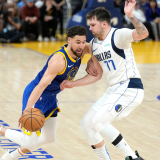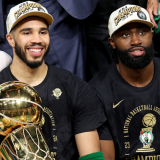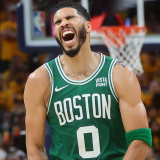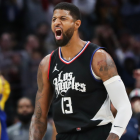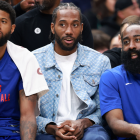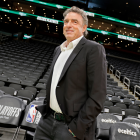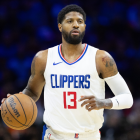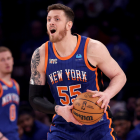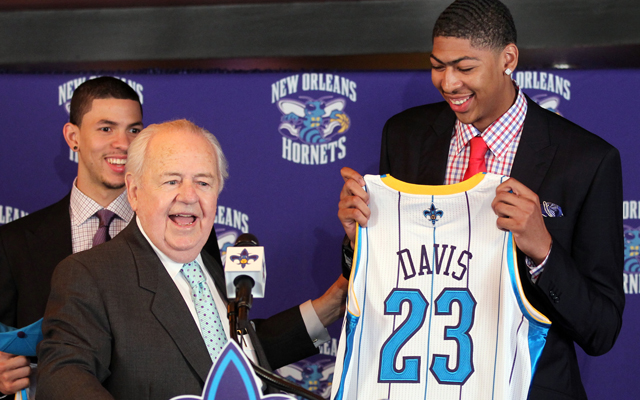 |
| The future is now in New Orleans. (Getty Images) |
I. How they finished 2012:
Here's the really weird thing: The Hornets, after everything, were really not that bad. After losing Chris Paul and David West (which everyone somehow forgets) last offseason, after being owned by the league the entire year, after the nightmare of the debate over the Lakers trade and all the fallout from "the veto" and "basketball reasons," the Hornets actually weren't terrible. The record was awful. That happens when you lose your two best players on a team that's not great to start with and the best guy you get back is out the entire year with an injury.
But Monty Williams had the Hornets playing consistently. They played hard, they played smart, they just didn't play well, because they didn't have the talent. So they -- for lack of a better word -- sucked, in the record department.
But they landed a high lottery spot...
II. Needs entering the offseason:
Well, an owner would have been a nice pickup, and the Hornets landed that in Tom Benson, owner of the Saints, bringing not just stability, but deep pockets to the table. The Hornets are out from under the league's control, which helps both the team and the NBA, and the league has a great new owner in play.
From there, they needed a deep investment in rebuilding. The Hornets needed to clear cap space by dumping big contracts for veterans and getting younger players. They also needed talent. Desperately. At every position. More than anything, though, they needed something to build around.
III. The Draft:
And then the Hornets landed the top pick in the lottery and even though they couldn't technically say it, there was never any question or doubt about who they would take.
Anthony Davis gives them everything they're looking for. He's not even raw offensively. His jumper is a question mark but not a problem. His face-up game is under-developed but not limited by anything physical. He can play well in the pick-and-roll and catch lobs by the bucket-full for points. He hit 3-pointers in the Olympics, for crying out loud.
He's going to anchor the defense and be a difference-maker immediately. He is everything you want in a first-round pick.
Then there's Austin Rivers.
If you believe that you can get a player to change his fundamental make-up, to be a wholly different player than his instincts drive him to be, then Rivers can be a great pick. If he can transform himself into a point guard and co-exist with Eric Gordon, that's going to put them forward by leaps and bounds. It looked like an oversight in not drafting a big, but that later proved to not be such a problem.
They landed Kentucky's Darius Miller in the second round, which wasn't too shabby, either.
IV. Free Agency:
Try to follow along.
First they dropped off both Emeka Okafor and Trevor Ariza's multiyear deals to get Rashard Lewis, who they immediately bought out to create cap room. They traded Jarrett Jack to Golden State, leaving them with starter holes at point guard, small forward and center.
They brought in Ryan Anderson, a restricted free agent, which seems to create a bit of a logjam with Davis. It was thought they would then be playing Davis at the 5 (which is a terrible idea), but then they traded for Robin Lopez.
Like I said, this is a little complicated.
They re-signed Eric Gordon, so now their starting lineup looks something like Austin Rivers-Eric Gordon-Ryan Anderson-Anthony Davis-Robin Lopez. You can sub in Greivis Vasquez for Rivers if you want. Either way, it's funky, it's nontraditional, but it's also pretty fun.
V. Overall grade and accomplishments: A+
Since being ripped to shreds by free agency and the Chris Paul situation, the Hornets have done the following:
- Drafted their next franchise superstar, who won a gold medal with Team USA.
- Re-signed their closest thing to an All-Star.
- Added a key free agent pick up on a great deal (Anderson).
- Traded for an injury-prone and spotty center on the cheap (Lopez).
- Were bought by a stable owner, providing them with resources (Benson).
- Cleared future cap space getting rid of any veterans on larger deals.
So, yeah, things went pretty well. Not to reference a movie that's referenced enough, but Monty Williams and Dell Demps crawled through a river of sewage and came out clean on the other side.




